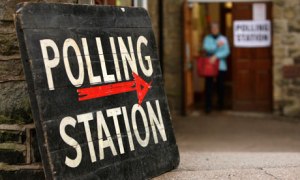By Areeq Chowdhury.
 I’ve finally had the chance to have a read of Eric Pickles’ long-awaited review into electoral fraud, and I think I agree with the analysis which describes it as the use of “a sledgehammer to crack a nut.”
I’ve finally had the chance to have a read of Eric Pickles’ long-awaited review into electoral fraud, and I think I agree with the analysis which describes it as the use of “a sledgehammer to crack a nut.”
Whilst a lot of the recommended reforms are welcome in the way they strengthen the process against fraud, many of the other reforms risk creating further barriers to voting and potentially discriminate against ethnic minorities.
Overall, the review amounts to some tinkering of the aged paper-based methods, and fails to look towards to the future of voting and towards the use of technology to create a more secure system of voting. Whilst voter fraud has had significant consequences in pockets of the country, the recommended restrictions risk deepening the more pressing issue of poor voter turnouts.
The requirement for voters to produce identification at polling stations is a welcome recommendation, and the current lack of requirement is something I have questioned for a while. Under the current system, any Tom, Dick or Harry can walk into a polling station, claim to be someone else and cast a vote, perhaps even repeatedly in one day. Malicious individuals may end up using fake IDs, but some safeguard in this area is better than no safeguard at all.

Other recommendations, however, such as the ban on the use of non-English or Welsh languages at polling stations serve no purpose other than to discriminate against voters who struggle with their command of the English language. This ban would include ‘any assistance given to electors by electoral staff.’
This recommendation would particularly discriminate against ethnic minorities or other individuals for whom English is not their first language. According to the 2011 Census, English is not the main language for more than 4 million people in the UK. In the London Borough of Newham, only 58.6% declared that English was their main language. Newham is a borough in which 71% of the population are from an ethnic minority background.
It is relatively easy, therefore, to see how a ban on the use of non-English languages to assist voters who do not have a strong command of the language is likely to make it much harder for those citizens to vote. The solution, surely, is to invest in reaching out to those citizens more and educating them about how the democratic process works, rather than to implement measures which serve only to isolate them.
Another recommendation which concerns me, is the idea of banning the option of being able to permanently request a postal vote. Whilst I understand the thinking behind it, particularly with cases such as Tower Hamlets, in which postal voting fraud was carried out, this particular measure risks creating a further barrier to voting for those with disabilities. The recommendation in the Pickles Review is for voters to reapply for a postal vote every three years.
I also question the recommendation for the Government to retain the IP addresses used to make voter registration applications. The Government themselves invested in voter registration schemes in which people went out to register voters on a single device, such as an iPad. The suggestion of the Government retaining ‘IP-matching’ data has been a topic of contention in British politics and in particular with regards to the so-called “Snoopers Charter.”
Despite this, suggestions such as increasing the maximum sentences for electoral fraud, and increased training for election staff are welcome measures which should be brought in before the next elections.
Although Sir Eric speaks of the “need to support engagement and not create undue barriers to democratic participation”, there is little, if anything, which looks at measures to support voter engagement. What the report does recognise, however, are the security flaws in the current democratic process.
Moving forward, we should look to the future and have a conversation about modernising our elections, rather than purely tinkering here and there with an outdated process, particularly if that tinkering restricts legitimate electors from voting.
Areeq Chowdhury is the Founder of WebRoots Democracy.

2 Replies to “Pickles’ election reforms risk creating further barriers to voting”